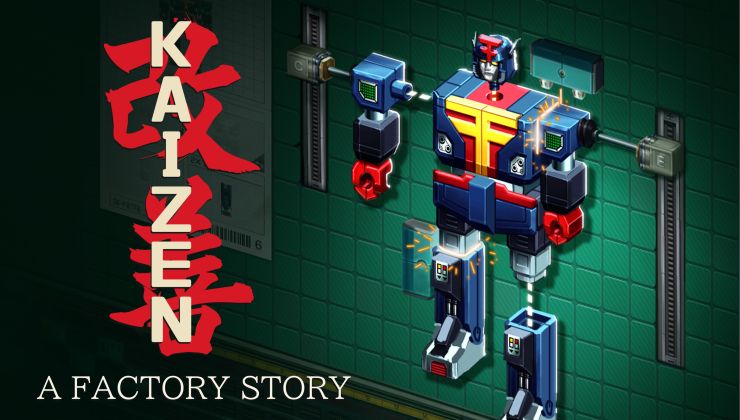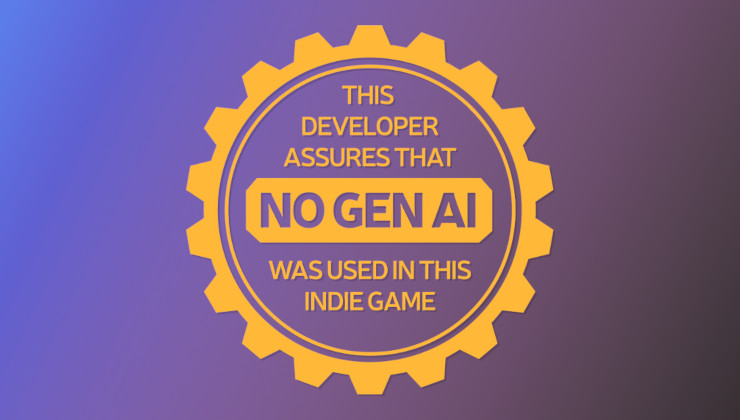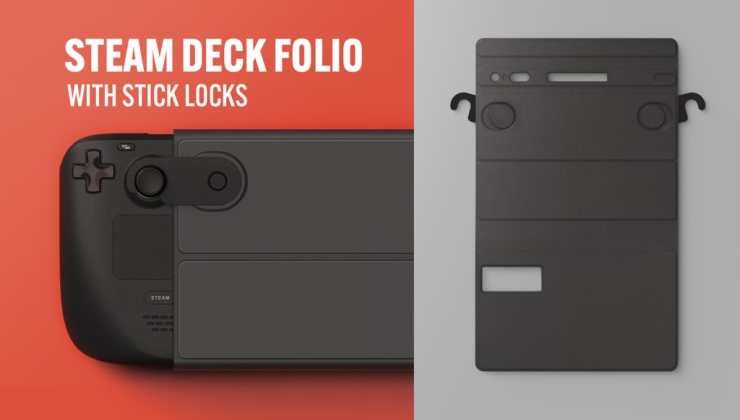Now that The Khronos Group has released the official Vulkan Ray Tracing API, which NVIDIA got in early it's all a bit more official with the NVIDIA 460.32.03 stable driver release.
Following on from their 460.27.04 Beta release back in December it's mostly the same. It's also now following their new driver naming scheme as we picked up before. On top of their dedicated developer-focused Vulkan / OpenGL drivers, they have their stable drivers like this which are now split between a "Production Branch" and a "New Feature Branch" with this 460.32.03 release being in the Production Branch (listed here).
The biggest thing is that this is a stable driver that supports the new cross-vendor Vulkan Ray Tracing API through these supported extensions:
- VK_KHR_acceleration_structure
- VK_KHR_ray_tracing_pipeline
- VK_KHR_ray_query
- VK_KHR_pipeline_library
- VK_KHR_deferred_host_operations
On top of that this driver also adds support for these extensions:
- VK_NV_fragment_shading_rate_enums
- VK_KHR_fragment_shading_rate
- VK_KHR_shader_terminate_invocation
- VK_EXT_shader_image_atomic_int64
- VK_KHR_copy_commands2
They improved their memory allocation strategy in nvidia-modeset.ko to reduce the likelihood of out-of-memory errors, plus support for RandR rotation and reflection while using an NVIDIA-driven display as a PRIME Display Offload sink and also support for "Reverse PRIME Bypass", an optimization that bypasses the bandwidth overhead of PRIME Render Offload and PRIME Display Offload in conditions where a render offload application is fullscreen, unredirected, and visible only on a given NVIDIA-driven PRIME Display Offload output.
For gamers, you will be pleased to know NVIDIA took on plenty of feedback and increased the OpenGL + Vulkan shader disk cache size to 1024MB and they gave it a new location. Lots more new, you can see the full changelog here.
If you missed the earlier news, NVIDIA are also preparing to support hardware accelerated XWayland.
xpander@archlinux ~ $ nvidia-smi | grep Version:
| NVIDIA-SMI 460.32.03 Driver Version: 460.32.03 CUDA Version: 11.2 |
Device-1: NVIDIA TU106 [GeForce RTX 2060 Rev. A] driver: nvidia v: 460.32.03Cyberpunk 2077 still crashes.
Device-1: NVIDIA TU106 [GeForce RTX 2060 Rev. A] driver: nvidia v: 460.32.03
Cyberpunk 2077 still crashes.
I've now played Cyberpunk 2077 for a little over two hours, and not a single crash so far here!
And no audio issues, no texture issues, nothing of what I hear from others. And I've done *no* tweaks, regular experimental proton, nvidia driver 455.45.01.
The only thing is a piss poor frame rate, I had to lower the resolution to 2560×1080 to obtain a fps on ~45, medium graphic settings. And that is hard to understand, seeing how butter smooth their engine runs on Witcher 3 (with amazing visuals!).
But under that condition (and I still think it looks good) I would call this game totally playable!
dist: Ubuntu 20.04.1 LTS
gpu: gtx1080
cpu: Intel® Core™ i7-8700 CPU @ 3.20GHz × 12
ram: 32gb
Last edited by Beamboom on 8 Jan 2021 at 9:38 am UTC
Device-1: NVIDIA TU106 [GeForce RTX 2060 Rev. A] driver: nvidia v: 460.32.03
Cyberpunk 2077 still crashes.
I wasn't aware they had made any Cyberpunk fixes with this release. Did you see some listed?
Device-1: NVIDIA TU106 [GeForce RTX 2060 Rev. A] driver: nvidia v: 460.32.03
Cyberpunk 2077 still crashes.
I wasn't aware they had made any Cyberpunk fixes with this release. Did you see some listed?
Not listed here but we're just desperately waiting for the VK_VALVE_mutable_descriptor extension for
Edit: thanks Leopard, got confused with all those vk acronyms.
Last edited by a0kami on 8 Jan 2021 at 5:17 pm UTC
Device-1: NVIDIA TU106 [GeForce RTX 2060 Rev. A] driver: nvidia v: 460.32.03
Cyberpunk 2077 still crashes.
I wasn't aware they had made any Cyberpunk fixes with this release. Did you see some listed?
Not listed here but we're just desperately waiting for the VK_VALVE_mutable_descriptor extension for WineD3D to perform better.
1-) That is not WineD3D , it is vkd3d-proton.
2-) That said extension only helps for gpu hangs. Which Nvidia users suffers because absence of it.
3-) Nvidia performance will not likely improve. Nvidia is not eager to investigate/help perf issues with vkd3d-proton from what i get. Pascal/Turing and older has really bad perf with it and it won't change. Ampere is better but that is likely due to that lineup in general being better.
So if you have any vkd3d-proton workloads on Linux , it is better to grab an AMD gpu or just dual boot if that is not possible. Nvidia perf seems like hit to a dead end with vkd3d.
3-) Nvidia performance will not likely improve. Nvidia is not eager to investigate/help perf issues with vkd3d-proton from what i get. Pascal/Turing and older has really bad perf with it and it won't change. Ampere is better but that is likely due to that lineup in general being better.
Thats not entirely true. Death Stranding and Cyberpunk 2077 seems to run as expected on my pascal (GTX 1080Ti) at least... checking several youtube videos of people running the game on windows with same/similar hardware and i can see the perf is where it should be.. about ~15% worse on same settings.
The special case is Horizon Zero Dawn though, where performance is exactly half of what it should be.
Don't have any other DX12 game to test on vkd3d-proton though.
3-) Nvidia performance will not likely improve. Nvidia is not eager to investigate/help perf issues with vkd3d-proton from what i get. Pascal/Turing and older has really bad perf with it and it won't change. Ampere is better but that is likely due to that lineup in general being better.
Thats not entirely true. Death Stranding and Cyberpunk 2077 seems to run as expected on my pascal (GTX 1080Ti) at least... checking several youtube videos of people running the game on windows with same/similar hardware and i can see the perf is where it should be.. about ~15% worse on same settings.
The special case is Horizon Zero Dawn though, where performance is exactly half of what it should be.
Don't have any other DX12 game to test on vkd3d-proton though.
It is generally much more worse at many dx12 titles. Where AMD ( RADV) usually hits to 90 percent of perf what you would get on native.
I recently tested The Division 1 , i get 50 percent perf compared to what i get on DXVK with that title for example. On Nvidia. Compared to native that would be getting 40 or 30 percent of perf.
Last edited by Beamboom on 8 Jan 2021 at 7:36 pm UTC
This is not new, many games suffer these sorts of performance issues over time, even some very low graphics games like POE2 Deadfire have major memory leaks.. These issues also exist under Windows 10 btw..
Some people don't notice the issues of performance decline over time because their running at lower resolutions or running DLSS, or for some reason their computer component configuration doesn't cause the issue to be as severe.
... and now it's added to the graphics drivers PPA! (Ubuntu)They got added to the normal Ubuntu repositories for 18.04, 20.04 and 20.10 on the same day this time, so without the usual months long delay.https://launchpad.net/ubuntu/+source/nvidia-graphics-drivers-460
I mostly stopped using the PPA since Ubuntu updates them in released distributions, but normally they do not get them on the day or the next day of release. Its usually around 2 months else.









 How to set, change and reset your SteamOS / Steam Deck desktop sudo password
How to set, change and reset your SteamOS / Steam Deck desktop sudo password How to set up Decky Loader on Steam Deck / SteamOS for easy plugins
How to set up Decky Loader on Steam Deck / SteamOS for easy plugins
See more from me